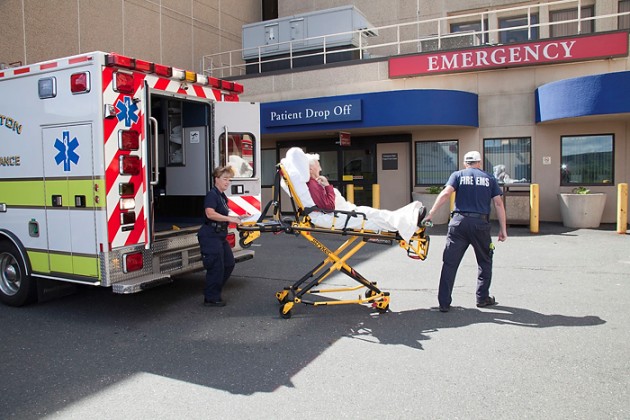More than 300,000 Americans on average are treated in our nation’s emergency departments every day, according to the latest government statistics, and patients are treated for a wide variety of medical conditions.
How do you decide when a medical condition rises to the level of a medical “emergency?” Kathleen Williams, critical care nurse in the Health Center’s emergency department, says better to err on the side of caution. “If you think you need emergency care, come to the emergency department and have a doctor examine you. We are there for you 24 hours a day.”
The American College of Emergency Physicians (ACEP) offers these warning signs that may indicate a medical emergency.
- Difficulty breathing, shortness of breath
- Chest or upper abdominal pain or pressure
- Fainting, sudden dizziness, weakness
- Changes in vision
- Confusion or changes in mental status
- Any sudden or severe pain
- Uncontrolled bleeding
- Severe or persistent vomiting or diarrhea
“If you think your medical condition is life-threatening or your condition will worsen on the way to the hospital, then you need to call 9-1-1 and not try to drive yourself to the hospital,” says Williams.
Emergency departments see patients based on the severity of their illnesses or injuries, not on a first-come, first serve basis.
If you can, bring along the following information in order to get the best possible care as quickly as possible:
- List of medications: What’s the name of the medication you are taking? How often do you take it and for how long?
- List of allergies: Be sure to include medications, foods, insects or any other product that may cause an allergic reaction. Bring a medical history form with you.
- Health insurance card and photo ID
“Communication is important when you arrive at an emergency department. If you are in pain or there is any change in your condition while you’re waiting, be sure to let the ED staff know,” says Williams.
Follow the UConn Health Center on Facebook, Twitter and YouTube.



